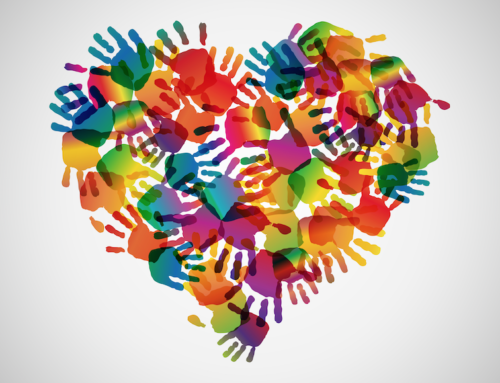Why I Still Read the Bible
September 27, 2016
Categories: Religion/Spirituality
The Bible isn’t very popular these days. It seems like every week someone brings up (a) the contradictions between the Bible and science, (b) the contradictions among various Bible passages with each other, and (c) how religious people have used passages in the Bible to fuel religious conflict and prejudice toward women and people who identify as LGBT.
Here’s the strange thing, especially for a ‘pro-Bible’ blog post: I agree with a lot of the critiques.
First, I’m a scientist at heart. As a little kid, I loved doing the science fair. I still remember making a telegram and learning how to send ‘SOS’ in Morse Code. During my freshman year, I attended Wheaton College, which is a conservative Christian college near Chicago. In my freshman biology class, we read a book that discussed three Christian views of creation. The authors writing the chapter on young-earth creationism basically said the available scientific evidence didn’t support the view that God created the world in 7-24 hour days, but they were making the case anyways because they thought it was more important to uphold the traditional reading of Scripture. The budding scientist in me wasn’t impressed with that argument.
Second, as I studied the Bible for myself, I realized there are some contradictions within the Biblical text itself. For example, the two creation accounts in Genesis are different. The two accounts of the birth of Jesus aren’t identical. The four accounts of the death and resurrection of Jesus aren’t the same. And there are some others. I struggled to figure out what to do with these contradictions.
Third, as I grew older, I realized some Christians used Biblical texts to support positions that were distinctly un-loving, especially toward people who believed differently. Some Christians seemed to use the Bible to argue against equality and justice for certain groups, such as women or individuals who identified as LGBT. I also realized this wasn’t a new issue. For example, historically some Christians supported the abolition of slavery, whereas others used passages from the Bible to support maintaining slavery.
I struggled with figuring out what to do with the tension I felt. I wondered: If I can’t reconcile the Bible with science, if the Bible has some internal contradictions, and if people use the Bible to support acting in ways that seemed to be really different from the life and teachings of Jesus, why not just pitch it?
I’m summarizing about a five-year journey here, but I came to realize a lot of the problems people have with the Bible come from 4 fundamental misunderstandings of the Bible. In other words, we use the Bible for purposes that it isn’t good for. Here are 4 misunderstandings of the Bible that stood out to me:
- The Bible is not a science textbook. The Bible was written thousands of years ago. The writers of the Bible didn’t have the luxury of going to the library and reading about the scientific discoveries of Copernicus, Galileo, Einstein, and Darwin. The ‘science’ in the Bible represents the best understanding of the Biblical writers at the time the Bible was written. To expect the Bible to reflect modern scientific thinking and advancements is a misunderstanding of the Bible.
- The Bible was not ‘dictated’ by God through an iPhone. I believe the Bible was inspired by God and is a collection of several author’s experiences of God over the years. However, I don’t think God dictated every word of the Bible. Instead, I think the Bible represents several authors’ experiences and understandings of God over time. That’s why I’m not surprised about contradictions in the Bible, nor do I get overly concerned about ‘figuring out a way to reconcile the contradictions.’ Let’s take the 4 Gospels, which represent 4 different accounts of the life of Jesus. The 4 authors had different experiences, different perspectives, and they stressed certain aspects of the life of Jesus more than others. Plus, the earliest Gospels were composed about 40 years after the death of Jesus. It’s not surprising (to me) that there are some differences or contradictions in the Gospel accounts. To expect every passage to line up perfectly, as if the Biblical authors had access to a news team videotaping Jesus’ every move, is a misunderstanding of the Bible.
- The Bible is not a rulebook in which verses can be applied out of context. As Christians, we have a bad habit of taking verses and applying them out of context to support our views. We forget that the Bible was written in a different time, place, and culture. We can’t just pick and choose verses and try to apply them to our lives (and the lives of others) without regard for the broader cultural context. For example, in the past Christians disagreed over the issue of slavery. Christians on both sides picked Bible verses to support their points. Now, we know slavery is wrong, but there wasn’t always consensus. There were a lot of Christians who were wrong in their support of slavery. Today, the issue of slavery has been resolved in the United States, but Christians still battle over issues such as the role of women in church (and in relation to men) and gay marriage. Bible verses are thrown around without regard to the cultural context in which the Bible was written. Expecting the Bible to be a simple rulebook or ‘owner’s manual to life’ is a misunderstanding of the Bible.
- Every passage of the Bible doesn’t reflect ‘God’s heart and perfect will for all time.’ Many Christians believe that if something is in the Bible, it must reflect God’s heart and perfect will for all time. Because of this, many Christians struggle with reconciling the God of the Old Testament, who, for example, appears to command the Israelite leader Joshua to kill every man, woman, and child (even the animals!) in the city of Jericho (Joshua 6) with Jesus in the New Testament, who commands his followers to love their enemies and turn the other cheek (Matthew 5:38-48). Some Christian denominations forbid the use of musical instruments in church, because the descriptions of the early church in the Bible don’t seem to use instruments. There are even passages in the Bible where its writers explicitly say “This is my opinion, it’s not from God” (1 Corinthians 7:10-16). I think believing each passage of the Bible to be equal in weight and importance is a misunderstanding of the Bible.
I believe if Christians were to work through these 4 misunderstandings of the Bible, we could actually develop a deeper respect for the Bible, which would aid its helpfulness in our everyday life. The Bible tells a history of people’s experiences with God over several thousand years. The Bible has beautiful sections of poetry describing individual and communal experiences with God. Perhaps most importantly, the Bible gives a detailed account of the life and teachings of Jesus, whom we as Christians view as the best representation of what it looks like to live a life that is pleasing to God.
And, to be honest, it was the life and teachings of Jesus that freed me up to read the Bible in a new way. There was a time, during my frustrations and wrestling with how to read the Bible, that I only read the Gospels. As much as I became frustrated with certain passages of the Bible (or how Christians were interpreting them), I pretty much always thought Jesus was on point with his life and teachings. My interest in the person of Jesus kept me engaged.
I wasn’t alone. There was a whole generation of young Christians that ‘liked Jesus but not the church.’ I loved what Jesus stood for, but had a hard time dealing with Christians who claimed to love like Jesus yet seemed to hate anyone who didn’t agree with them. I struggled to understand passages of the Bible that seemed to promote violence and killing.
What brought me back to the Bible was the idea of reading the Bible through the lens of Jesus. If Jesus is the best representation of God we have to model our lives after, it makes sense that the life and teachings of Jesus could be used as a filter through which to read and interpret the rest of the Bible. For example, Jesus focused on love for our neighbor and justice for the oppressed. So we as Christians should probably stand up for those who are being oppressed today, just like Jesus did in his day. Sure, there was violence in the Bible just as there is today, but the teaching of Jesus was to love our enemies and turn the other cheek. Jesus modeled non-violent resistance. Because Jesus is the best representation and the lens with which to interpret the rest of the Bible, his teaching on violence should be given priority.
I think there are a lot of problems with how a lot of Christians read and interpret the Bible, as well as how Christians use the Bible to support their own personal and political views. I am guilty of this as well. However, I don’t think we should throw the baby out with the bathwater. Instead, I think Christians need to critically examine how we read and interpret the Bible, and be careful to not understand or use the Bible in problematic ways. The Bible is a powerful book. But we need to take responsibility for how we read and use it in our lives.
Discussion: What is one struggle you have with the Bible?
Related Thoughts

Subscribe To My Newsletter
Join my mailing list to receive the latest blog posts.
Receive my e-book “The Mental Health Toolkit” for free when you subscribe.





